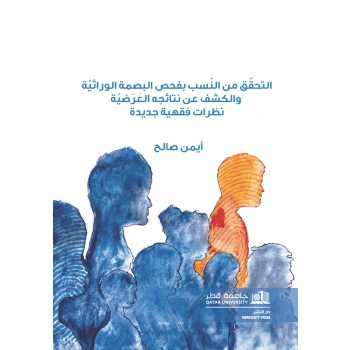التحقّق من النّسب بفحص البصمة الوراثيّة والكشف عن نتائجه العَرَضيّة
يمثل هذا الكتاب نموذجًا للكتابة الفقهية التي يوظف فيها الفقيه "أصول الفقه" لإنتاج "فقه جديد" يتجاوز الفقه المعاصر السائد في قضية تأثير فحص البصمة الوراثية في النسب، والذي ركن غالبًا إلى التخريج الفقهي للقضية على فروع الفقه القديم. فترك المؤلف هذه الفروع القديمة، حاكمًا عليها بالمرحلية التاريخية، التي واءم فيها الفقهاء فقههم مع الإمكانات العلمية التي كانت في زمانهم. وقد استطاع المؤلف أن يعيد بحث المسألة من جديد بردها إلى جذورها الأصولية فضلًا عن استكشافه سبلًا غير مطروقة في المسألة من قبل.
This book is a model of Fiqh (jurisprudence) writing, in which the Faqih (jurist) utilizes the principles, “usul” of Fiqh, to produce “new Fiqh” that goes beyond the prevailing contemporary Fiqh, on the case of the effect of DNA test on paternity, which was often based on the Fiqhi extraction (takhrij) of old branches of Fiqh. These traditional perspectives were abandoned as the author judged them to belong to a historical phase where jurists aligned their Fiqh with the knowledge capabilities of their time. The author was able to re-examine the issue, thus reestablishing it on its "usuli” principles as well as exploring untrodden routes.

